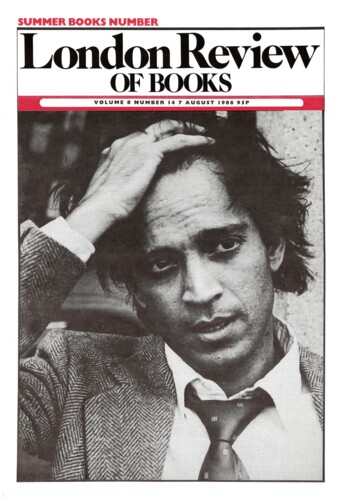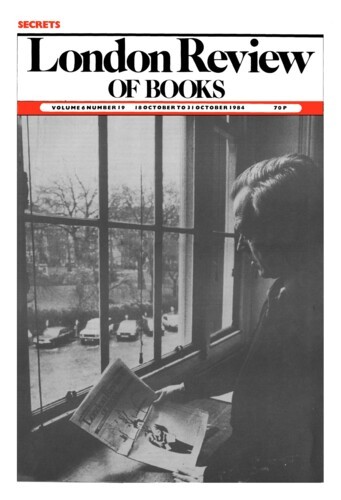A Passion for the Beyond
Bernard Williams, 7 August 1986
‘It seems to me that nothing approaching the truth has yet been said on this subject,’ Thomas Nagel says in the middle of this complex, wide-ranging and very interesting book; and he says it at the end of a chapter (on the freedom of the will) not, as some other philosophers might, at the beginning. The book argues in a determined way about the largest philosophical questions: the nature of reality, the possibility of knowledge, freedom, morality, the meaning of life. It offers, not answers to those questions, but a distinctive and unified approach to them. In that sense, the book is very ambitious. Yet one of its most notable features is its modesty. Nagel regards the problems he has chosen to discuss as more compelling than his own contribution to them, and he is always willing to say that he does not know the answer to a difficulty. His discussions are informed by a sense that what he is saying may be overthrown or overtaken by other views. It is a great relief from the remorsely demonstrative tone that grips the work of analytical philosophers, including some of us who in principle know better.





